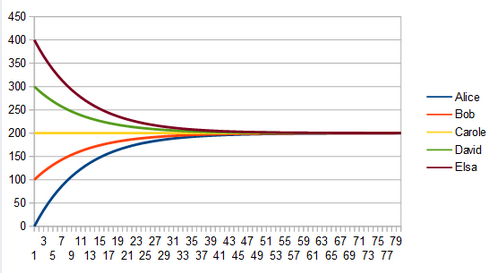Are the first Ğ1 co-creators privileged compared to new members?
First thing is to sell
If you enter a trading system in which some have money and you don’t, you ought to sell before being able to buy.
Ğ1 co-creators that have created Ğ1 for some time have therefore the benefit of being able to buy before they sell, especially if they’ve already sold a lot of goods or services.
They could even buy without selling. But if they do so indefinitely, their account balance will obviously tend towards 0, which makes this approach limited, even more so if the price of goods and services they buy are expensive in terms of the number of days of UD they represent.
Typically, if a jam jar costs 6 UD, and considering that a month has 30 days, it means someone from the web of trust can buy 5 jars per month without selling anything.
Is that really so desirable?
You could buy on credit
(a good approach when buying from someone you know well and there is a bond of trust created).It could happen some day that you find yourself without any Ğ1, but want to buy something, let's say at a Ğ-event. You could make an agreement with the seller that you will pay for the item later when you have sufficient Ğ1 to do so.
You could also borrow Ğ1 from other Ğ1 co-creators. Why would they refuse? They know you will soon create Ğ1; therefore they have no reason to doubt your capacity to repay. Again, this highlights to importance of building friendship and trust within the Ğ1 community, so such transactions and agreements are possible.
In the end, everyone creates the same share
The convergence of the Ğ1 accounts is so that every user will create the same share of the money (the same amount of UD), whatever their entry date into the currency co-creation.
The graph below shows this phenomenon well, with all Ğ1 account balances converging with time. Time is illustrated in weeks on the horizontal axis.

Comments
With my ? underlined…